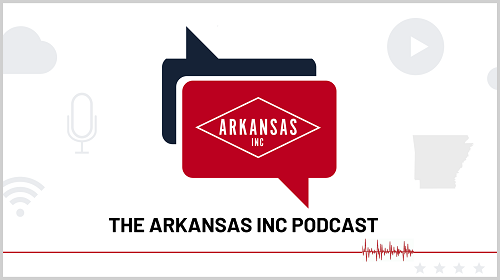AEDC Awards 30 Community Grants Totaling Over $7 Million
March 21, 2022Little Rock, Ark. (March 21, 2022) - The Arkansas Economic Development Commission (AEDC) has awarded $4,753,478 million in Community Development Block Grants (CDBG) to 30 Arkansas cities and counties.
The grants were awarded under the General Assistance set-aside, part of Arkansas’ $18.86 million 2021 formula grant allocation, which is designed to provide communities the opportunity to apply for a variety of non-housing public facility and public infrastructure projects. These funds originate from the U.S. Department of Housing and Urban Development (HUD) through the Community Development Block Grant (CDBG) State Program for Small Cities.
An additional $2,424,095 was awarded to nine cities and counties throughout the state from the CDBG-CV set-aside, a $26.4 million supplemental program to assist in local government-level recovery, prevention, and preparation efforts relating to the coronavirus. The CDBG-CV funding was allocated to the State by HUD as part of the Coronavirus Aid, Relief and Economic Security (CARES) Act.
The 21 General Assistance projects include:
- Arkansas City, Desha County, Arkansas City Waste Treatment Pond Improvements, $300,000
- Ash Flat, Sharp County, Ash Flat Street Overlay Project, $244,317
- Ashdown, Little River County, Ashdown Drainage Project, $299,530
- Bald Knob, White County, Bald Knob Manhole Project, $299,879
- Booneville , Logan County, Booneville Sidewalk Project, $200,000
- Etowah, Mississippi County, Etowah Wastewater Treatment Plant Project, $300,000
- Evening Shade, Sharp County, Evening Shade Water Line Project, $237,508
- Gentry, Benton County, Gentry Stormwater Drainage Project, $192,150
- Hackett, Sebastian County, Hackett Sidewalk Project, $125,600
- Hatfield, Polk County, Hatfield Street Project, $148,075
- McGehee, Desha County, McGehee Water/Wastewater System Rehab, $299,954
- Murfreesboro, Pike County, Murfreesboro Drainage Improvement Project, $300,000
- Norman, Montgomery County, Norman Wastewater Improvement Project, $299,921
- Patterson, Woodruff County, Patterson Water Treatment Plant Upgrade, $270,275
- Stephens, Ouachita County, Stephens Water Meter Project, $181,043
- Tollette, Howard County, Tollette Wastewater Project, $299,996
- Van Buren County, Van Buren County Street Project, $300,000
- Waldron, Scott County, Waldron Sidewalk Project, $172,008
- Wilmot, Ashley County, Wilmot Water/Wastewater Improvement Project, $299,954
- Wilton, Little River County, Wilton Water/Wastewater Improvement Project, $283,268
The nine CDBG-CV projects include:
- Blytheville, Mississippi County, Blytheville Homeless Shelter Project, $275,000
- Camden, Ouachita County, Camden Community Center Project, $299,057
- Crossett, Ashley County, Crossett Youth Center Project, $300,000
- Garland County, Mid America Museum HVAC Project, $281,700
- Jackson County, Jackson County Homeless Shelter Project, $156,825
- Paragould. Greene County, Paragould Homeless Shelter Project, $281,500
- Paris, Logan, Paris Food Pantry Project, $300,000
- Pope County, MARVA Workshop Project, $300,000
- Sebastian County, Sebastian County Senior Centers Project, $230,013
To be eligible for CDBG funds through both of these programs, communities must have a population of less than 50,000 and at least 51 percent of the persons benefitting from the project must be of low- to moderate-income, or the project must meet another CDBG national objective, prevention of slum or blight, or meet an urgent need. CDBG-CV projects must have a direct tie-back to COVID-19, and meet an unmet need toward the recovery, prevention, and preparation efforts relating to the coronavirus. All Arkansas cities and counties are eligible for the grant program with the exception of 13 entitlement cities that receive CDBG funds directly from HUD.
For more information on the Arkansas Small Cities CDBG or CDBG-CV program, contact the Grants Management Division at (501) 682-7682 or visit https://www.arkansasedc.com/grants. The Grants Division encourages local governing officials that have ongoing or future unmet COVID-19 needs to contact them for funding opportunities through the CDBG-CV program.


